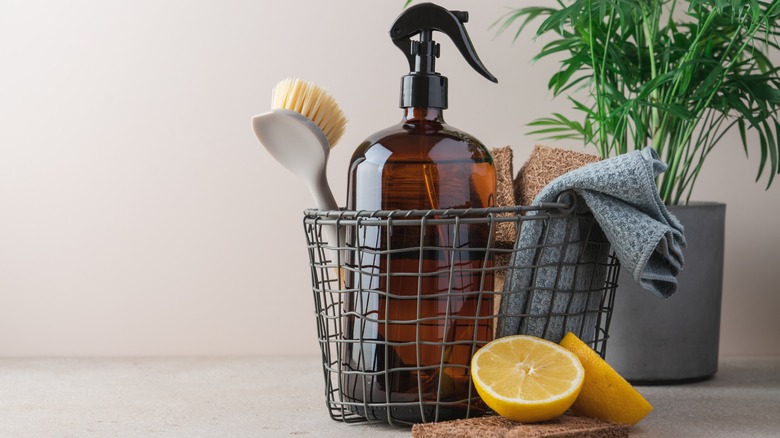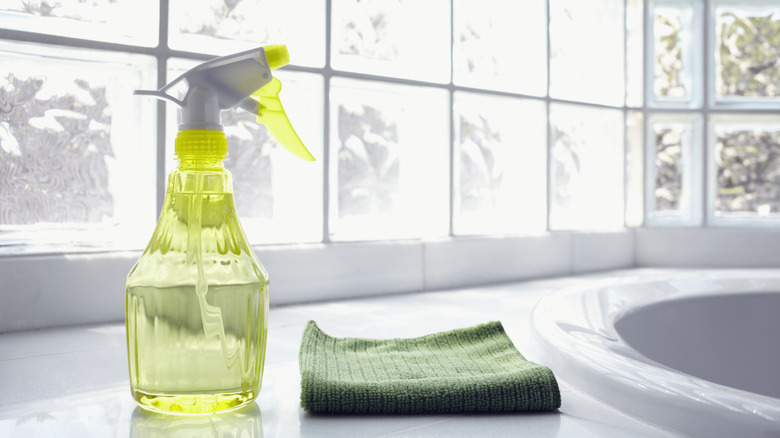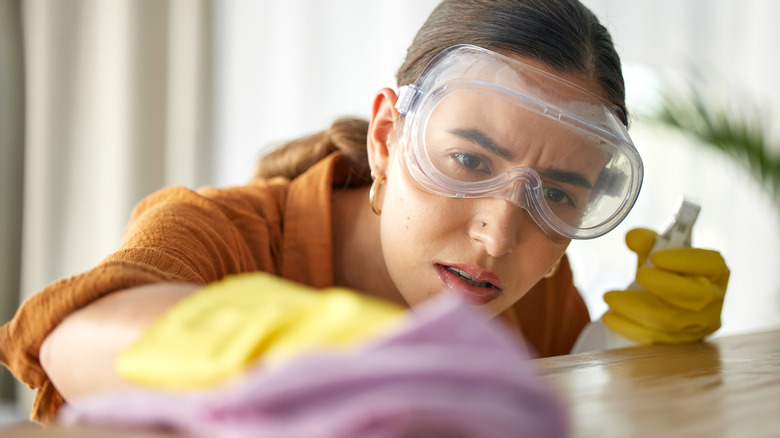How To Use Lemon & Hydrogen Peroxide As An All-Purpose Cleaner Around Your Home
Why invest in store-bought cleaners when you can make your home spotless with ingredients that you already own? There are many surprising ways to use hydrogen peroxide in your home, from degreasing and disinfecting to removing stubborn stains. When diluted in water and mixed with lemon juice, hydrogen peroxide can be an excellent eco-friendly cleaner. Add these ingredients to a spray bottle and you have an effective non-toxic solution that makes your surfaces and appliances gleam like new.
Also known as H2O2, hydrogen peroxide is used widely for its antibacterial, antiviral, and antimicrobial properties. Plus, it is more environmentally friendly and safer than cleaning products that contain chlorine and bleach. Lemon is a powerful natural cleaner in its own right. The organic citric acid of lemon juice helps to break down dirt, grime, hard water buildup, and even rust, and the fresh scent of lemon will infuse your home with freshness every time you use it. Though a safe choice for many purposes, there are a few considerations to keep in mind before making hydrogen peroxide and lemon juice your go-to household cleaner.
Making an all-purpose cleaner with H2O2 and lemon juice
Making an effective lemon juice and hydrogen peroxide cleaning solution only requires a few simple steps. First, try to find a dark colored spray bottle for your mixture, as hydrogen peroxide decomposes faster when it is exposed to sunlight and warmer temperatures. To extend its shelf life, store your homemade cleaning solution in a cool, dark place when you're not using it.
To make the spray, dilute one cup of 3% hydrogen peroxide in two cups of distilled water, then add two to three tablespoons of lemon juice. Mix the ingredients to the bottle and your non-toxic cleaner is ready for use. You can spritz surfaces directly or spray the solution onto a clean rag. Use a microfiber cloth on surfaces that are prone to scratches, such as porcelain.
For the maximum disinfecting benefits, allow the solution to absorb for a few minutes before drying. Hydrogen peroxide needs five minutes of contact time to kill bacteria and sanitize surfaces. Because it decomposes into oxygen and water, there is no need to rinse hydrogen peroxide after you apply it. Simply allow it to air dry or wipe it with a cloth. For deeper or more precise cleaning, such as scrubbing tile grout and the crevices around your sink, stovetop, or dishwasher, consider applying the cleaning solution with an old toothbrush.
Things to be mindful of when using this cleaner
Hydrogen peroxide and lemon juice are non-toxic cleaners that get the job done, but there are a few precautions to be aware of to use them safely and protect your surfaces from damage. When using hydrogen peroxide to clean around the house, it's important to wear gloves and long sleeves to prevent this substance from coming into contact with your skin. Further, it can be harmful when ingested and inhaled.
Further, H2O2 is often used as an alternative to bleach and can effectively remove stains from mattresses, clothing, and furniture, especially when combined with lemon. However, it can also cause some materials to become discolored. If you're concerned about this happening, it is best to test your cleaning solution on a discreet area to ensure that it is safe to use.
When cleaning with lemon juice, certain surfaces should be avoided as they are prone to becoming tarnished and scratched. Lemon juice is excellent at cleaning stainless steel, greasy stoves and countertops, but it can cause surface damage on marble and brass-plated hardware.


